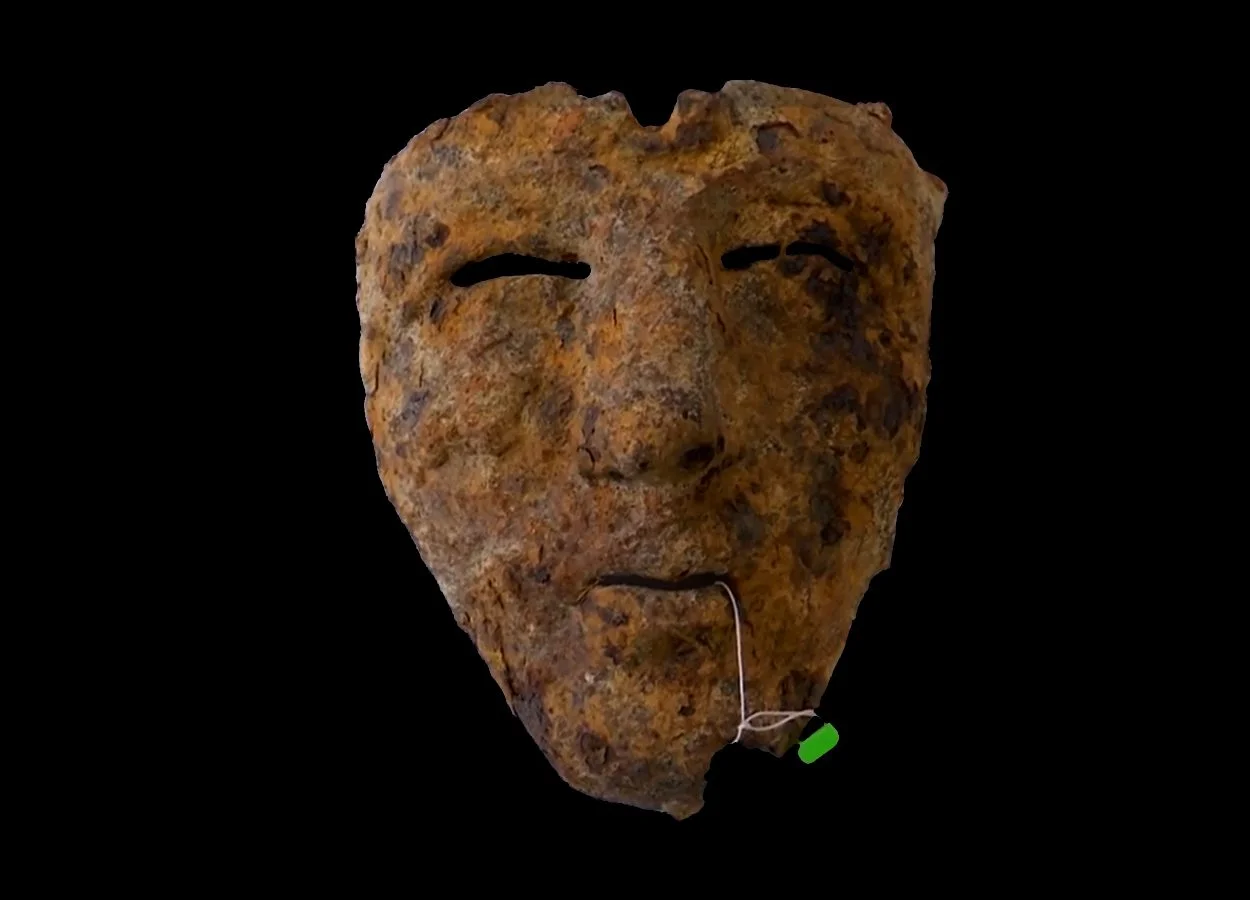A Roman parade mask has been discovered by an amateur archaeologist in the Albeni commune, located in the Gorj County of Romania.
The discovery was made by Betej Viorel, an amateur archaeologist who was conducting a metal detecting survey, when he came across an iron mask from the Roman period and reported his find to local authorities.
In Romania, the ownership of a metal detector requires written authorisation from the Police. Using a metal detector at known archaeological sites is strictly prohibited without the prior permission of the Ministry of Culture.
Any finds older than 100 years are to be surrendered to the relevant authorities within 72 hours, with 30% of the value of the find rewarded. When a find is classified as treasure, the reward is increased to 45%.
According to Gheorghe Calotoiu from the Gorj County Museum, the mask was likely worn by a soldier stationed either at the Roman fort of Bumbești-Jiu, now known as Vârtop, or a military outpost somewhere in the vicinity.
The mask is relatively intact but has corroded due to the high iron content and exposure to oxygen and water in the soil. The artisan who created the mask has made perforated holes around the nostrils for breathing, and slits in the eyes and mouth.
Experts date the mask to the 2nd or 3rd century AD, a period when parts of Romania was located in the Roman province of Dacia, also known as Dacia Traiana. The region was conquered by Emperor Trajan between AD 98–117 after two campaigns that devastated the Dacian Kingdom of Decebalus.
Dumitru Hortopan, Director of the Gorj County Museum said: It will undergo a restoration process in the laboratory next to the Romanian Academy, after that it will be classified and exhibited in the permanent exhibition of the Gorj county museum.
Header Image Credit : Gorj County Museum





